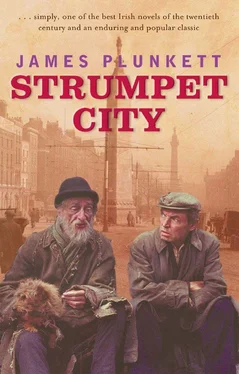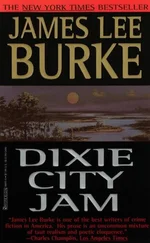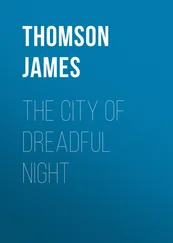‘I could?’
‘If you could try to like me a little,’ Father O’Connor said. ‘You make me feel useless and unwanted.’
How true it was came freshly to his mind as he said it. Father Giffley had treated him with contempt from the very first day. He had treated him unfairly too, giving him the seven o’clock mass to say each morning without a single respite and taking the ten o’clock mass himself. Father O’Connor had accepted it in a spirit of self-abasement and obedience. The conscious act of submission bore him up as he rose morning after morning in the raw, high-ceilinged bedroom.
‘Is it merely politeness you want? The work here demands slightly different accomplishments.’
‘I had hoped for your guidance in that.’
‘Guidance,’ Father Giffley repeated. He had sat down again and this time he addressed the word to the fire.
‘I had hoped so.’
‘You are a hypocrite, Father.’
Wondering, not for the first time, if his superior was mad, Father O’Connor said:
‘I don’t know why you should say so.’
‘Because you consider me a drunkard.’
‘Oh no, Father.’
‘Yes, indeed, Father.’
Father Giffley took his glass to the whiskey bottle and this time he poured for himself.
‘It’s almost thirty years since I first came to the slums. I didn’t come like you, looking for the dirty work, I came because I was sent. They knew of my weakness for good society and good conversation. I suppose they thought they’d cure me by giving me the faces of the destitute to console me and the minds of the ignorant to entertain me. And the tenements to drink tea in. Have you any idea, Father, how many tenements there are in this gracious city?’
‘Too many, Father, I realise that.’
‘Too many is a generalisation which is good enough for the pious horror one expresses in the pulpit. There are almost six thousand of them and they accommodate about eighty-seven thousand people. I have lived in the centre of that cesspool for thirty years.’
Father Giffley sat on the edge of the table and gave a smile which was a spontaneous flash of triumph.
‘I have at least been able to minister to them without feelings of pious condescension.’
‘Are you suggesting that I . . .’
‘I am drawing your attention to a possibility and reminding you that your office is to serve all equally, right down to the most illiterate poor gawm at my altar rails.’
Father Giffley, having used the possessive pronoun with intent, rose and banged the bell, summoning the housekeeper to clear the table.
That is all I wanted to see you about.’
He went to the window and transferred his interest to the railway signals.
At four in the afternoon a new night had almost begun. The sky outside the bedroom which Fitz was sharing with Pat Bannister was already dark. In the half-light Fitz saw Pat’s shoulder above the bedclothes. He got up and shook him.
‘Four o’clock.’
Pat squinted at him and realised the significance of what he had said.
‘Thanks be to God,’ he answered, throwing back the clothes, ‘we’ve a few bob to collect.’
They went down to the foundry and found Hennessy and Farrell at the gate. There had been an argument. They had been paid at sixpence an hour. Mulhall was in the office demanding ninepence. Pat went to the pay office and was given six shillings for his twelve-hour stretch. Fitz, being on the regular payroll, was not due to draw his wages until the following day.
‘Overtime rate will be paid to our regular men,’ the pay clerk assured him, ‘it’s only the casuals who are in dispute.’
‘Our agreement is ninepence,’ Mulhall said.
‘I’ve already been into that,’ the pay clerk answered.
‘So has Jim Larkin,’ Mulhall said. ‘He negotiated ninepence. I’m going to report this.’
‘You mustn’t threaten me with Mr. Larkin. We have nothing to say to him.’
‘Maybe he’ll have something to say to you,’ Mulhall said. Then he took the six shillings which the clerk had already set before him and walked out.
‘What about a drink?’ Pat suggested while they were still arguing at the gate.
‘Not for me,’ Farrell said.
Fitz said: ‘Come on. I owe you money.’
‘What about you?’ Pat said to Mulhall.
‘I was thinking of reporting to Larkin . . .’ Mulhall said, tempted.
‘Have a jar and then report to him.’
‘Larkin hates the smell of drink,’ Pat said. ‘He told me once I’d live to see the grass growing over the ruins of Guinness’s Brewery.’
The thought seemed to depress Hennessy.
‘A little drink is no more than our modest due, gentlemen,’ he urged.
They went together, striding purposefully along the tram-rattling streets, conscious of the fact that they had money enough for once to meet the needs of the occasion. Only Hennessy lagged behind.
‘Gentlemen,’ he said, ‘have a little mercy on a man with a rheumaticky back.’ They slowed down and he joined them again. Mulhall guffawed and said:
‘If you left the woman alone now and then you’d find the walking easier.’
‘It’s the only amusement available to the penniless,’ Hennessy said good-humouredly.
As they turned off the main street Fitz slipped some money to Farrell so that he would not be embarrassed when his turn came to buy a drink. They walked between tall decaying houses. Candlelight and lamplight predominated in the tenement windows, with here and there a gas mantle distinguishable by its whiter glow. A lamplighter just ahead of them went methodically about his work, reaching upwards with his long, light cane and leaving a glowing chain of lamps in his wake. The iron railings which bordered the houses took on a wet sheen. Fitz watched him. The lighting of lamps always fascinated him. He said generally:
‘When I was a youngster I always wanted to be a lamplighter.’
‘Does he work for the Gas Company?’ Pat asked.
‘No, the Corporation,’ Hennessy answered knowledgeably. ‘It’s a pensionable job. He nearly lost it once.’
‘Who is he?’ Mulhall asked.
‘Baggy Conlon,’ Hennessy supplied. ‘He’s very fond of a sup and one night after he lit the lamps he went into a pub and fell into company. After a few hours he got stupid drunk and forgot he was after lighting the lamps already. He kept saying he had his work to do and they mustn’t detain him. At last when he came out and saw the lamps were lighted he gets the mistaken notion that it’s putting them out he should be. So off he starts and has half the bloody city in darkness before he’s arrested on a charge of public mischief.’
Then they turned into Cotter’s public house and called for hot whiskeys.
The rags and the beard arrested Father O’Connor’s attention. The travelling sack and the cord about the waist reminded him of pictures of pilgrims in some childhood book. He touched Rashers on the shoulder. Rashers, absorbed in his search of the large ashbin, straightened slowly and looked around. When he saw it was a priest he raised his hat. Father O’Connor fumbled in his pocket and gave him a shilling.
‘The blessings of God and His Holy Mother on you,’ Rashers said.
‘And on you,’ Father O’Connor returned.
He looked down the street. The public clock told him it was a little early for his return to St. Brigid’s, so he lingered.
‘Did you salvage anything of value,’ he asked, ‘a piece of clothing, perhaps?’
‘Not in this lot,’ Rashers said. ‘I wouldn’t be looking here for clothes.’
‘Not . . . food?’ Father O’Connor asked, the thought upsetting him.
‘Sometimes you’d find food,’ Rashers said, ‘but very seldom.’
‘And why not?’
Father O’Connor’s dullness of imagination shocked Rashers, but the shilling claimed indulgence.
Читать дальше












